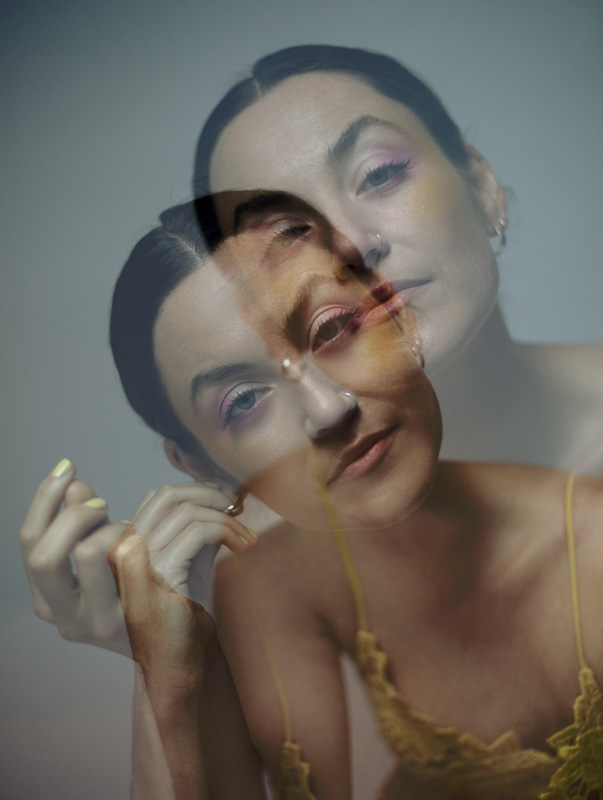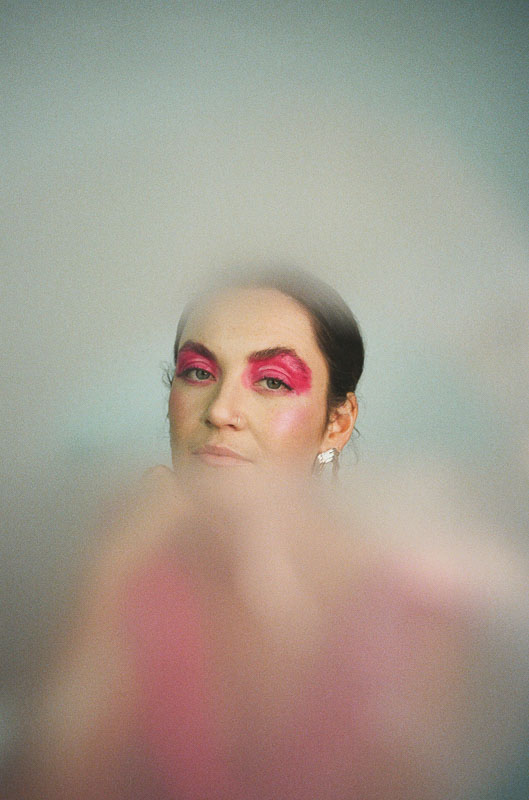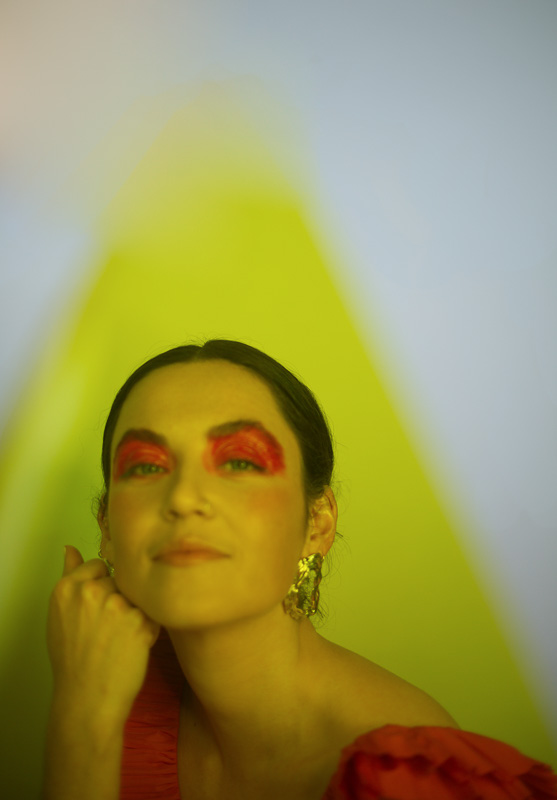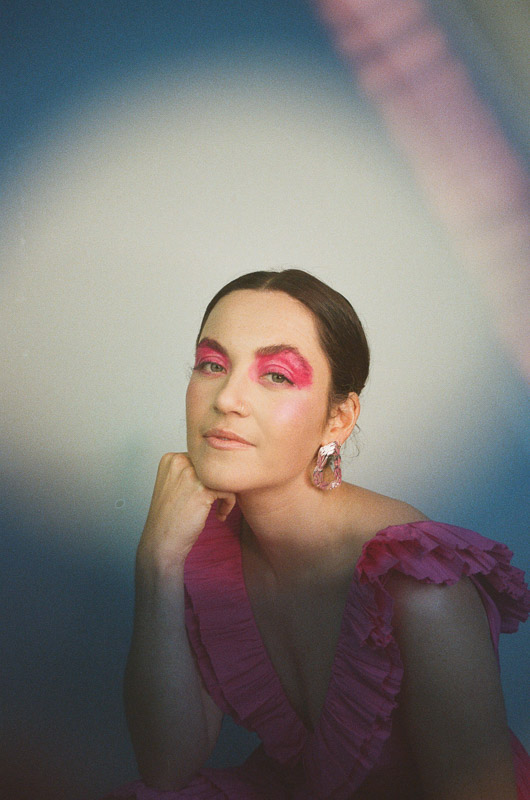Saint Clair Exclusive FAULT Magazine Cover shoot and Interview

Photographer: Tam Topolski
Make Up: Kyla La Grange
Some of history’s most outstanding music has been created during times of elevated distress. For Saint Clair, her upcoming ‘in the violet hour’ visual EP explores her grieving process following the death of her father. While deeply personal and honest to her experience, Saint Clair’s ability to channel her emotions into music which resonates with others going through their unique circumstances is masterful.
Exploring grief through the medium of photography, film and music combined, Saint Clair delved deeply into all the different stages of the grieving process to deliver a project which transcends any one artistic barrier. With the launch of the project one day away (6th November) we caught up with the musician to discuss her process, the EP and of course, her FAULTs.
British culture likes to tip-toe around themes of death and mortality, did channelling your grief into music come naturally at first?
It’s really strange, death is the only universal constant and yet I think the concept of mortality is often just too big an issue to confront. People just bury it in the hope that it makes themselves feel better and actually I’ve found the opposite to be true. The more we can communicate about death the better equipped we are to deal with it. With regards to channelling it into my music, writing songs about it was just a really natural process because I write about whatever I am experiencing.
Were you always writing with this project in mind or did the decision to create the visual EP come afterwards?
I looked at all the songs I’d written and I saw a spike in interest around the songs about grief, my dad and losing him. They’d been written at completely different stages of my grieving process almost like diary entries. I put them together as a collection of my journey through grieving up until this point.

You work closely with your sister on this project, did the visual side develop with the music or afterwards?
I sat down with my sister because I really wanted to make it a visual project. She’s an actor mainly, but also a skilled photographer.
We started developing it together and it spiralled completely out of control and we met somewhere in the middle, got funding and, an amazing team together and we created what is now an 18-minute short film. You can watch it in chapters and each chapter alongside the music is a different stage of grief.
When you create something so honest about your experiences and put them out into the world, you also invite critics to review it. Were you ever fearful of the prospect of someone critiquing your very personal experiences?
In the making of, I wasn’t thinking about external factors or how it would be received because it was so personal, emotionally charged and authentic so what anyone else made of it was irrelevant. You can critique what I’m wearing, my voice, the songs but you can’t really say my experience of losing my dad isn’t correct. Even if no one watches it or everyone hates it, I’ve created a tribute to my dad that is honest. There’s so much symbolism and I use his voice recordings and it feels like a private moment that just accidentally has become a public one. I think I’m less worried about being criticized and more, just very aware now of how vulnerable I am.

Does the release of ‘in the violet hour’ feel like you’re closing a chapter on your shorter-term grieving process?
Definitely. I think it’s wonderful to have something that I can always refer back to. It felt like we were really channelling what we were feeling and getting up close and personal with what happened. I don’t know whether consciously grieving is necessarily a good thing but there was something so connected and now that we’ve completed this project, we can actually begin to grieve more successfully.
Do you worry that when you come to perform the songs live that you’ll be forced to relive the same emotions as when you wrote them?
I’ve never performed them. I’ve never included these in a gig and now their so intrinsically linked with the visuals and this project that I think it will be healthy for them to exist outside of the visuals. In a gig setting you might hear one and think it’s about heartbreak, for example, so I think it’ll be good to put them into a set with all my other songs so that they can gain a life of their own.

Do you take the time the consciously reflect on all of your achievements or does it sometimes pass by in a blur?
I think more the latter. It’s ingrained in us that you’re constantly at the whim of whatever job you get offered and so you’re always chasing your tail, always playing catch up with your ambitions. For me it’s practical, I’d like to make money in spaces that are still musical creative and challenge me. I also like being really busy – I thrive on it. I don’t manage my time very well when I’m on my own so this current period is not me at my best.
What’s something you’ve done this year to protect your mental health?
I have a very tight-knit group of friends who are all musicians or actors. There’s something so comforting about knowing that everyone is in the same boat. They’re all trying to figure it out so you don’t feel like an anomaly. We’re just rallying together and we’re looking after ourselves and and I had a civil partnership coming up so that was really nice. I can’t do anything career wise, but I can kind of solidify my love and that’s a nice thing to have done.

What is your FAULT?
An incredibly unreasonable sensitivity to small noises. I’ve self-diagnosed myself with mysophonia which some say means you’re a genius.